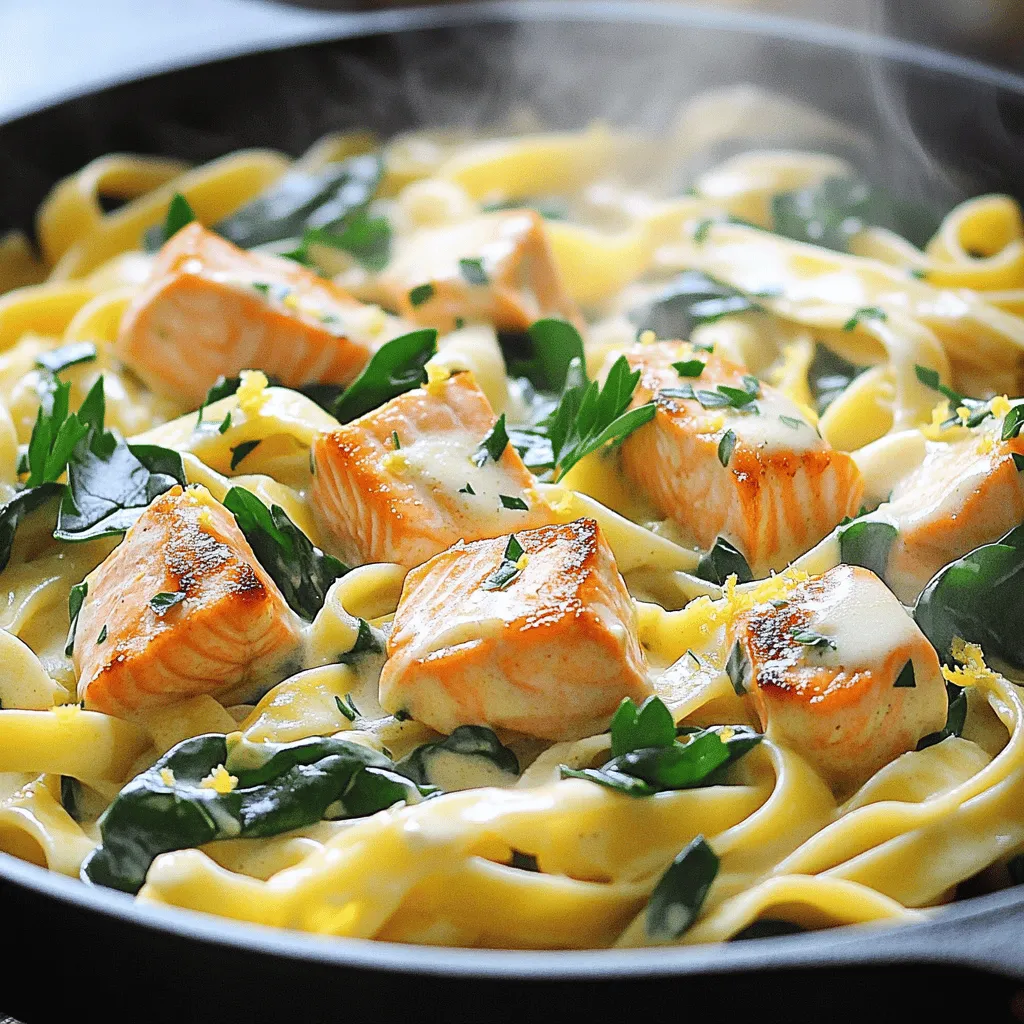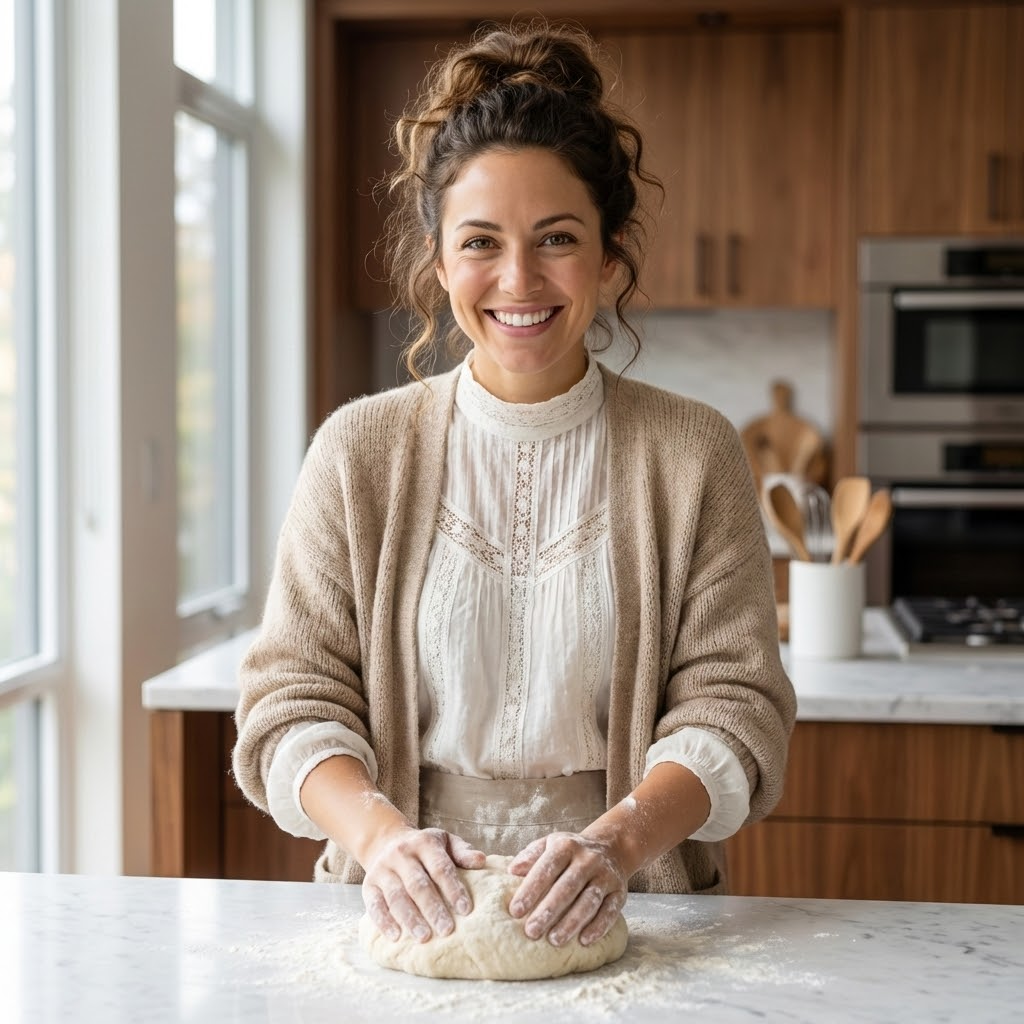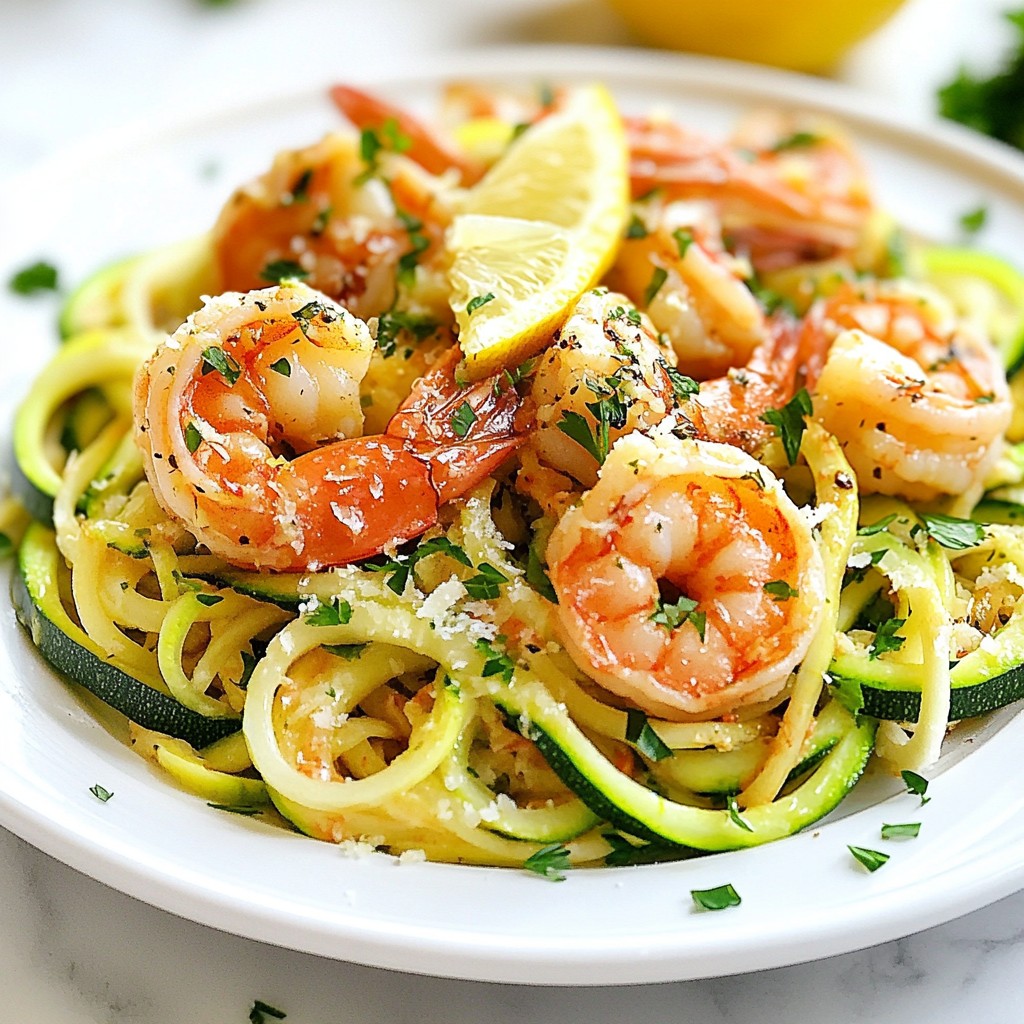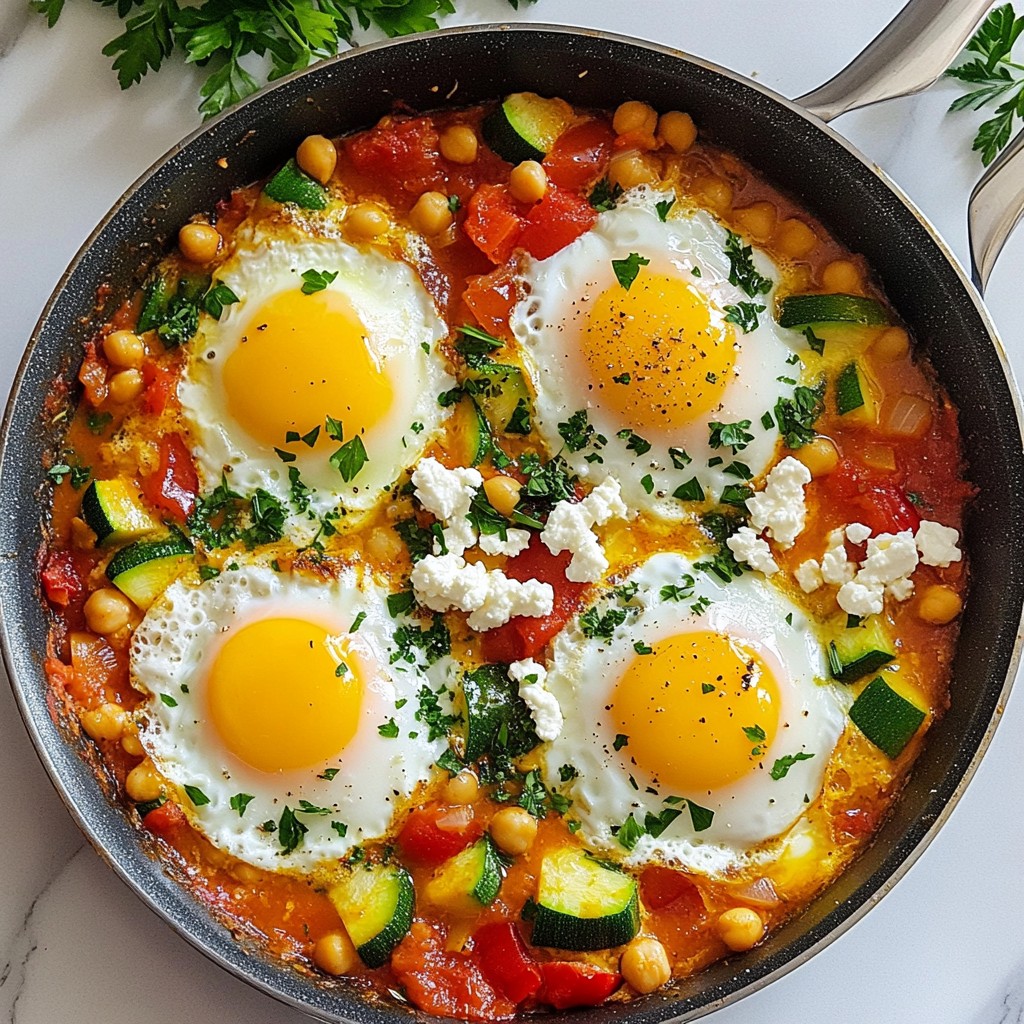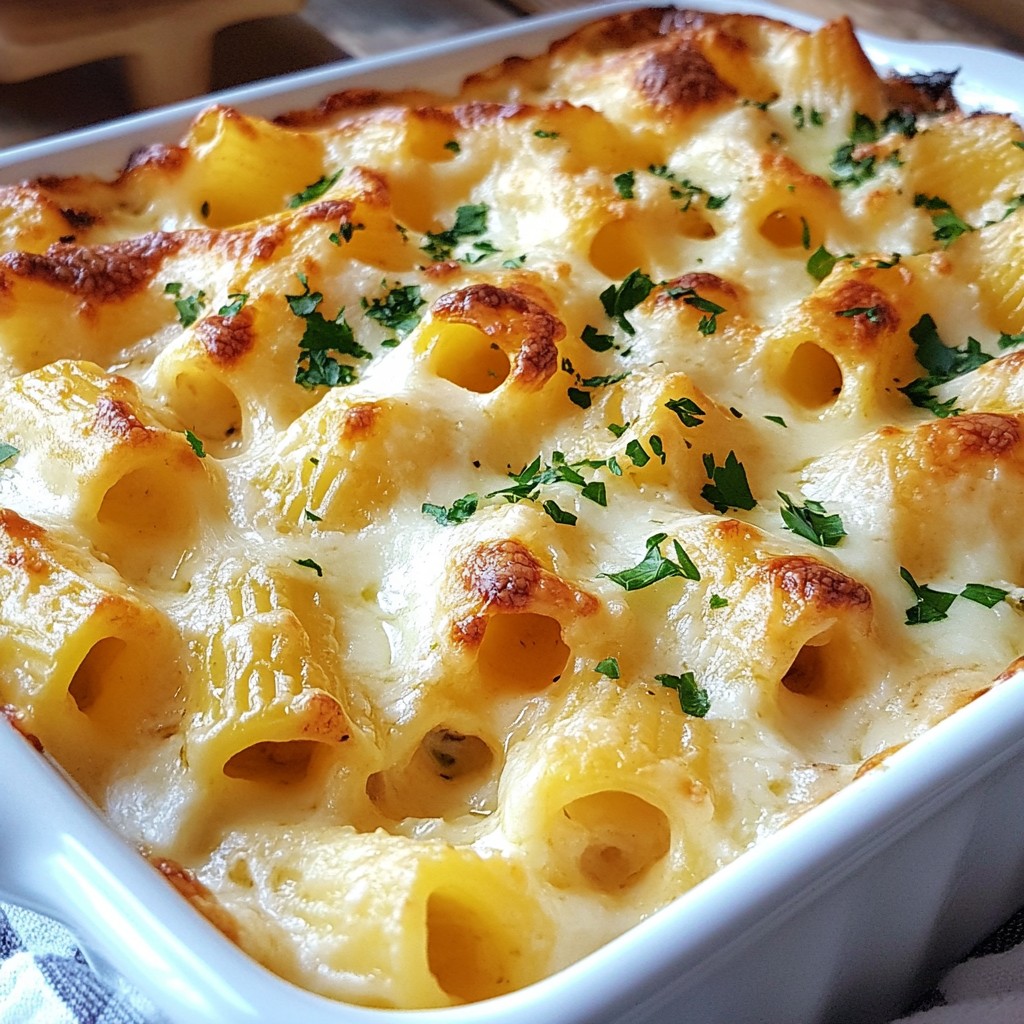Are you ready to impress your taste buds with a dish that’s both creamy and packed with flavor? This Creamy Garlic Salmon Pasta is simple to make and absolutely delicious. In just a few steps, you’ll learn how to create a satisfying meal that combines fresh salmon, savory garlic, and rich cream. Join me in this culinary adventure and transform your weeknight dinner into something special!
Ingredients
Required Ingredients List
– 8 ounces fettuccine pasta
– 2 tablespoons olive oil
– 2 salmon fillets (about 6 ounces each)
– 4 cloves garlic, minced
– 1 cup heavy cream
– 1/2 cup freshly grated Parmesan cheese
– 1 cup spinach leaves
– Zest of 1 lemon
– Juice of 1/2 lemon
– Salt and pepper to taste
– Fresh parsley, chopped (for garnish)
When I make creamy garlic salmon pasta, I love using fresh ingredients. Fresh salmon, garlic, and spinach truly elevate the dish. The fettuccine pasta gives it a nice texture.
Suggested Equipment
– Large pot
– Skillet
– Cooking utensils (spatula, measuring cups, etc.)
Using the right tools makes cooking easier and more fun. A large pot helps boil the pasta perfectly. A non-stick skillet is great for searing the salmon and making the sauce.
Nutritional Information
– Calories per serving: About 600
– Macros breakdown: 35g protein, 50g carbs, 30g fats
This dish is rich in protein from the salmon and creamy sauce. The spinach adds some vitamins, too. It’s a hearty meal that satisfies without being too heavy.
Step-by-Step Instructions
Cooking the Pasta
To cook pasta well, use a large pot filled with salted water. Bring the water to a boil. Add the fettuccine and stir to prevent sticking. Cook until the pasta is al dente, which means firm but not hard. This usually takes about 8 to 10 minutes. Once done, drain the pasta but save about 1 cup of the pasta water. This helps later with the sauce.
Searing the Salmon
For salmon, medium heat works best. Heat olive oil in a skillet. Season the salmon fillets with salt and pepper. Place them in the skillet and cook for about 4 to 5 minutes on each side. You want the salmon to flake easily with a fork. When it’s done, remove it from the skillet. Let it cool a bit, then flake it into bite-sized pieces.
Preparing the Garlic Cream Sauce
Sautéing garlic is key to a great sauce. Add minced garlic to the same skillet and cook for about 1 minute until it smells good. Then, pour in the heavy cream. Bring it to a gentle simmer. Mix in the Parmesan cheese, lemon zest, and juice. Stir until the sauce is smooth. This creamy sauce adds richness to your pasta.
Combining Ingredients
Now, it’s time to bring it all together. Add the cooked fettuccine to the skillet with the garlic cream sauce. Then, add the spinach and flaked salmon. Gently toss everything together. If the sauce is too thick, add a bit of the reserved pasta water until you reach your favorite consistency. Taste and adjust with more salt and pepper if needed.
Tips & Tricks
Achieving the Best Flavor
Using fresh ingredients makes a big difference. Fresh salmon has a better taste than frozen. Choose bright, vibrant spinach. The garlic should smell strong and earthy. For seasoning, salt and pepper are key. I also like to add lemon juice for a zesty kick. It brightens the dish and enhances the flavors.
Try using freshly grated Parmesan cheese. It melts better and gives a rich flavor. You can also add a pinch of red pepper flakes for some heat. This adds depth without making it too spicy.
Cooking Techniques
Cooking salmon safely is important. Start with medium heat to avoid burning. Look for a golden-brown crust. The fish should flake easily with a fork. If it is still raw in the middle, cook it a bit longer.
When cooking pasta, time is everything. Follow the package instructions for al dente pasta. This means it should be firm to the bite. Overcooked pasta becomes mushy and loses its taste. To avoid this, set a timer when it’s boiling.
Presentation Tips
Plating your creamy garlic salmon pasta is fun. Use a large bowl to show off the dish. Twirl the pasta to create a nice shape. Place the flaked salmon on top for a nice look.
Garnishing with parsley adds color and freshness. Use fresh parsley and chop it finely. Sprinkle it over the dish just before serving. This small touch makes a big difference in how it looks and tastes.
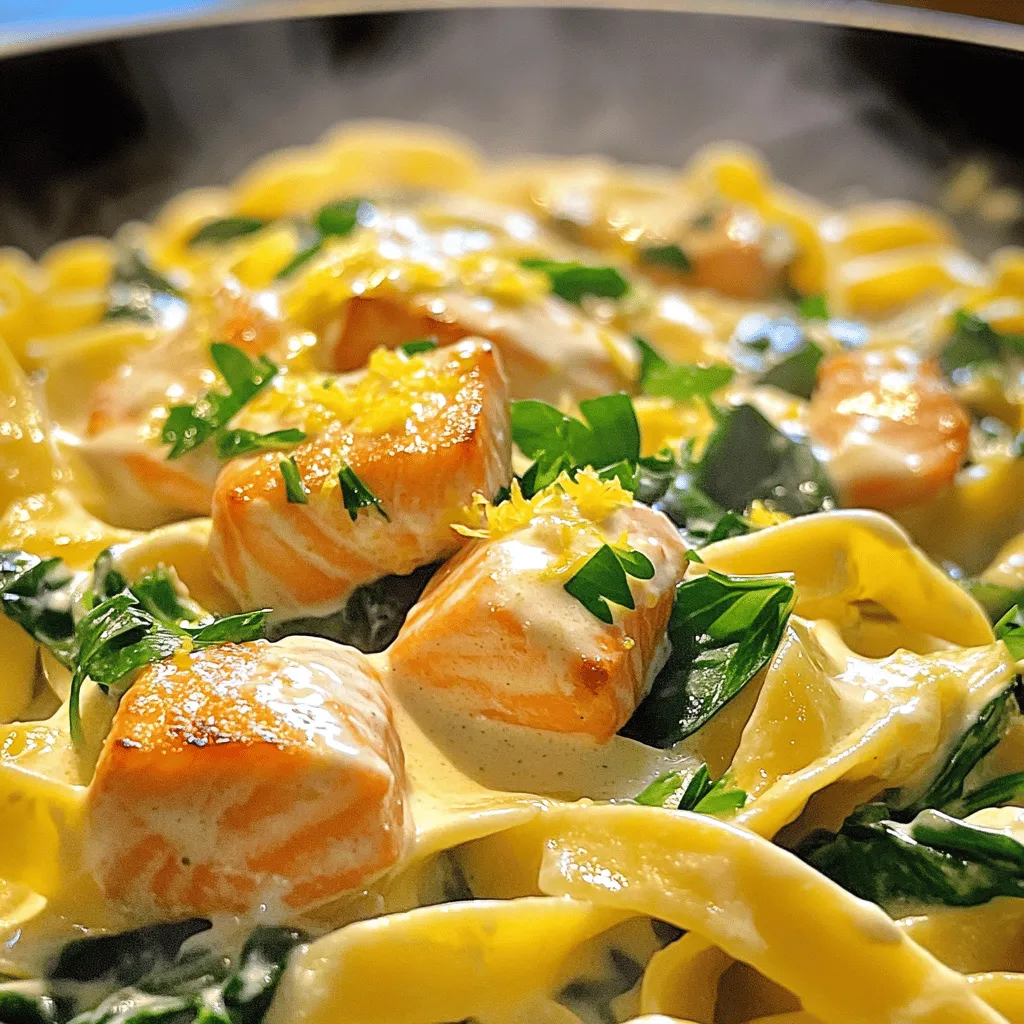
Variations
Ingredient Swaps
You can swap salmon for other proteins. Chicken or shrimp works well. Both add a nice twist. For a vegetarian version, use mushrooms or zucchini. They give a great texture and flavor.
Sauce Modifications
You can change the cheese in the sauce. Try mozzarella for a milder taste or feta for a bit of tang. To add extra flavor, sprinkle in some red pepper flakes or a dash of smoked paprika. This can really spice things up.
Pasta Alternatives
If you need gluten-free options, use rice noodles or quinoa pasta. These will change the taste a bit, but they work great. Remember to adjust cooking times. Rice noodles cook fast, while whole wheat pasta may take longer. Keep an eye on them so they don’t turn mushy.
Storage Info
How to Store Leftovers
To keep your creamy garlic salmon pasta fresh, use airtight containers. Glass or BPA-free plastic containers work best. Make sure to let the pasta cool down before sealing. This prevents moisture build-up, which can lead to soggy pasta. Store the containers in the fridge. It will stay good for about 3 days.
Reheating Instructions
When reheating, aim to keep the pasta creamy. Use low heat to avoid drying it out. You can add a splash of water or extra cream to help. If using a microwave, cover it to trap steam. Heat in short bursts, stirring in between. If you prefer the oven, place it in a covered dish at 350°F. Bake for about 15 minutes, checking to ensure it warms evenly.
Freezing Information
Yes, you can freeze creamy garlic salmon pasta! Just make sure it has cooled completely. Place it in a freezer-safe container, leaving some space for expansion. It can last up to 3 months in the freezer. To thaw, move it to the fridge for a night. If you’re in a hurry, you can use the microwave on low. Once thawed, reheat as described above for the best taste.
FAQs
What type of salmon is best for this recipe?
For creamy garlic salmon pasta, I recommend using fresh salmon. Fresh salmon has a rich flavor and a nice texture. If you can’t find fresh salmon, frozen salmon works too. Just make sure to thaw it properly before cooking. This way, you get the best taste and quality in your dish.
Can I make this recipe without cream?
Yes, you can make this dish without cream. If you want a lighter version, use Greek yogurt or coconut milk. Both options keep the dish creamy while reducing fat. You can also use vegetable broth for a lighter sauce. Just remember to adjust the seasoning to match your taste.
How long does it take to cook salmon?
Cooking salmon usually takes 8 to 12 minutes. The time depends on the thickness of the fillets. A thicker piece takes longer to cook. You can check if it’s done by using a fork. If it flakes easily, it’s ready to eat. Keep an eye on it to avoid overcooking.
Can I prepare this dish in advance?
Yes, you can prepare creamy garlic salmon pasta in advance. Cook the pasta and salmon, then store them in separate containers. Keep the sauce in another container. When you’re ready to eat, just heat everything up. This method helps keep the flavors fresh. It’s perfect for meal prep!
What to serve with creamy garlic salmon pasta?
This dish pairs well with a crisp salad or garlic bread. A light green salad with lemon vinaigrette complements the pasta nicely. For wine, try a chilled white wine like Sauvignon Blanc. The bright flavors match the salmon well, enhancing your meal.
This blog post covered how to make creamy garlic salmon pasta, detailing required ingredients and equipment. I shared easy, step-by-step instructions to help you cook pasta, sear salmon, and whip up a delicious garlic cream sauce. I also offered tips for flavor, presentation, and variations for personal tastes.
In closing, this dish is not just tasty but also adaptable. Enjoy making it your own, and don’t forget to savor every bite!
